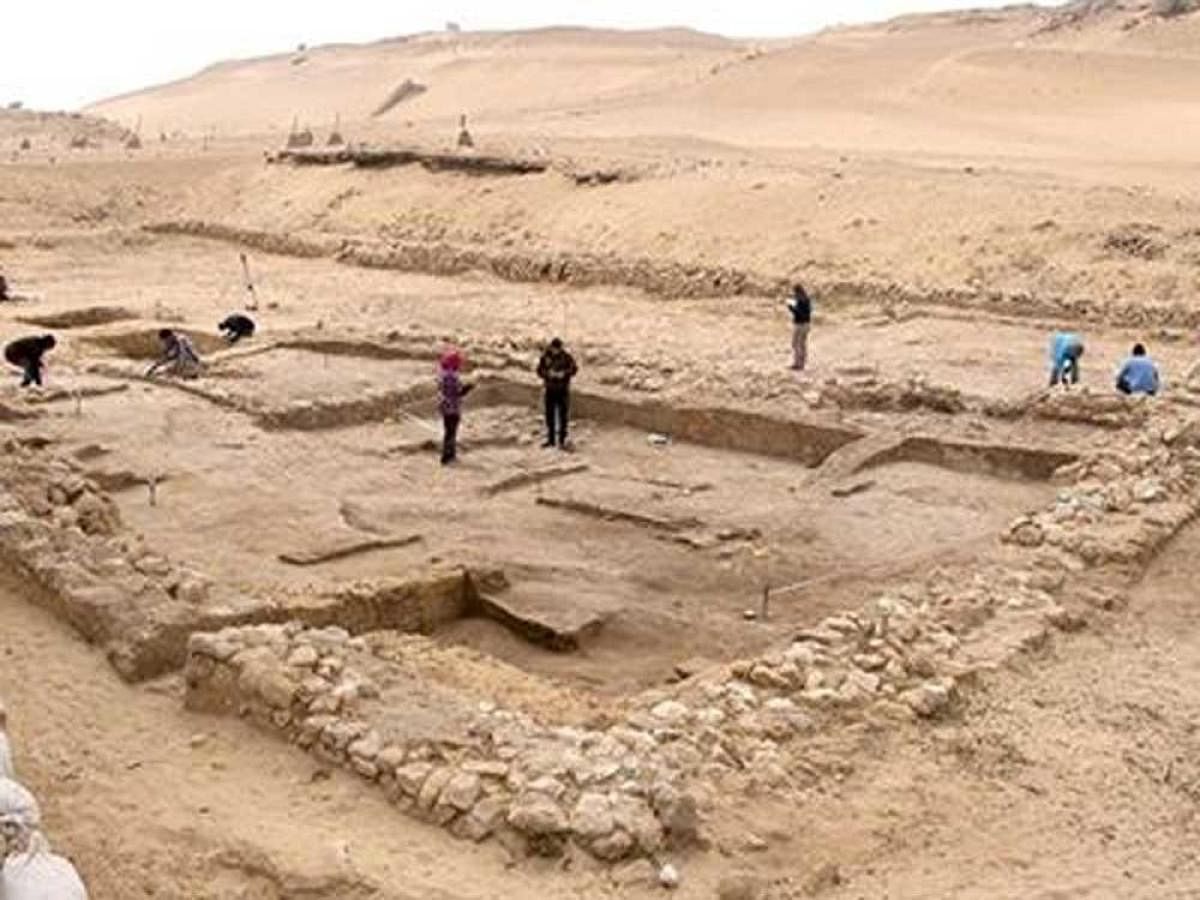
Scientists have discovered two ancient homes near the Giza pyramids in Egypt that may have housed officials responsible for overseeing the production of food for a paramilitary force over 4,500 years ago.
Researchers from US-based Ancient Egypt Research Associates discovered the structures in an ancient port at Giza, which is believed to have flourished at the time when the Pyramid of Menkaure was being constructed.
One of the officials living in the structures may have been responsible for the containment and slaughtering of animals for food
The other structure may have housed a priest who was part of an institution called the "wadaat", researchers said.
They found seals found mentioning the wadaat, an ancient Egyptian institution whose priests could be high-ranking officials in government, said Mark Lehner, the director of Ancient Egypt Research Associates.
This priests' residence was attached to a structure that may have been used for malting, suggesting that its occupant oversaw brewing and baking operations at the time, Lehner said.
The two residences are located near a series of structures called galleries, which may have housed a paramilitary force at Giza, 'Live Science' reported.
These galleries may have held more than 1,000 people. Any food produced near the two residences was likely meant mainly for people living in the galleries, although some of the food could have reached people working at the Menkaure pyramid, Lehner said.
The two residences are located in what is believed to be "the national port of its time," with goods and materials coming in from all over Egypt and the eastern Mediterranean, researchers said.
Archaeologists previously found other residences in this port, including a 21-room house used by scribes who worked in the port.